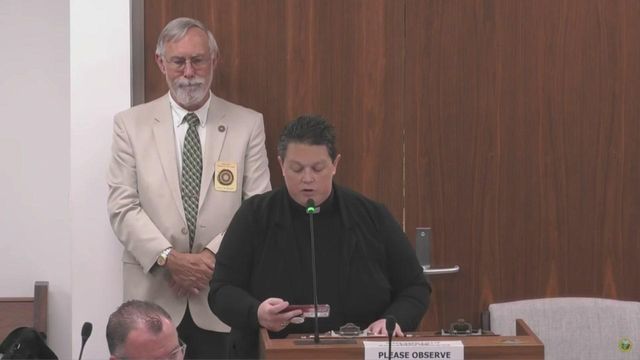NC Senate Republicans want lawmakers to approve community college system president

A North Carolina Senate committee favored a bill Tuesday that would give lawmakers the ultimate say in who the next president of the North Carolina Community Colleges System is.
The Senate Education/Higher Education Committee approved the bill with some opposition.
It heads to the Senate Rules Committee next.
House Bill 149 originally concerned only the expansion of North Carolina charter schools’ ability to run virtual academies, passing through the House. But Sen. Tom McInnis, R-Cumberland, introduced an amendment Tuesday that would require the any future community college system president to be approved by the North Carolina General Assembly.
The system is currently without a permanent president. As it stands now, the 20-member State Board of Community Colleges selects the president.
Sen. Natasha Marcus, D-Mecklenberg, opposed McInnis’s amendment, arguing the change “has nothing to do with this bill.”
“It’s yet another power grab of the General Assembly over education matters that’s pretty disturbing to me,” Marcus said.
McInnis said he proposed the amendment because he believed the general assembly could provide more stability to the community college system than the system’s board could.
“We have to have certainty and continuity in the president of our system,” McInnis said.
The community college system has had a new permanent or interim president almost every year for several years, and system leadership has also experienced high turnover.
If it passes, the Community College System Office would select three final candidates for president and submit them to the State Board of Community Colleges, which would vote among the three to pick the next president. Then, the General Assembly must approve a joint resolution confirming the president within 30 “legislative days” of the selection.
The community college system includes 58 colleges across the state.
In recent years, Republican state lawmakers have shifted University of North Carolina System Board of Governors appointments from the governor’s authority to lawmakers’ authority. Recently, they’ve sought to place a Constitutional amendment on the ballot that would make the State Board of Education elected, rather than appointed by the governor.
House Bill 149, as amended Tuesday, does three major things:
- Requires the North Carolina Community Colleges System president to be approved by the North Carolina General Assembly
- Allows charter schools to form “remote academies,” in addition to their physical schools, that enroll either students across North Carolina or students in their county and surrounding counties
- Extends the pilot program for two statewide virtual charter schools by another year and allows them to increase enrollment by as much as 20%
The bill also allows charter schools that did a virtual school during the 2021-22 school year to keep operating that school under the state-approved plan they had for that school year.
The state’s two virtual charter schools — North Carolina Virtual Academy and North Carolina Cyber Academy — have been in operation in “pilot” status for several years, while receiving low marks for student performance. Schools that have low school performance grades are required to form turnaround plans, but the charter schools are exempt from that until they exit the pilot phase.











